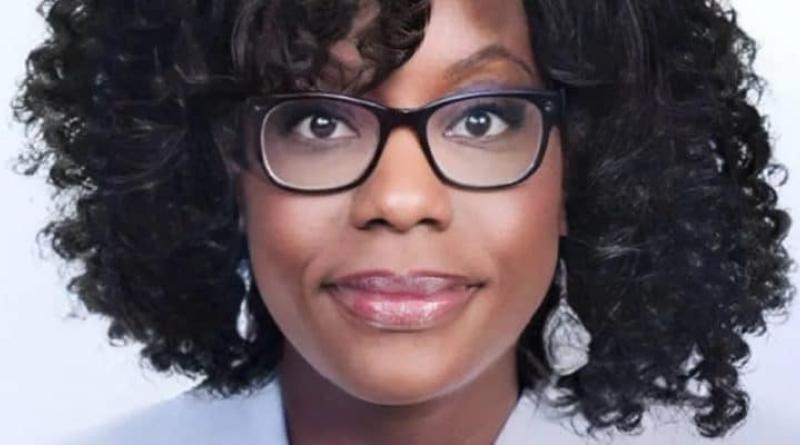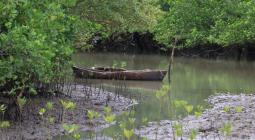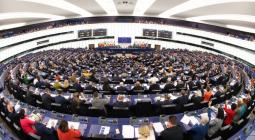In Africa, “the carbon market will give polluters carte blanche”

As oil and gas projects proliferate in Africa, the continent's heads of state and government, meeting recently in Nairobi, Kenya, for the first African Climate Summit, are proposing a tenfold increase in investment in renewable energies. For Oulie Keita, Executive Director of Greenpeace Africa, who took part in the first African Climate Summit, the responsibility of polluters, particularly those in the oil sector, must be engaged.
As oil and gas projects proliferate in Africa, the continent’s heads of state and government, meeting recently in Nairobi, Kenya, for the first African Climate Summit, are proposing a tenfold increase in investment in renewable energies. For Oulie Keita, Executive Director of Greenpeace Africa, who took part in the first African Climate Summit, the responsibility of polluters, particularly those in the oil sector, must be engaged.
Jean Marie Takouleu: Like other members of civil society, you took part in the first African Climate Summit, which ended on 6 September 2023 in Nairobi, Kenya. The resolutions presented at the end of this meeting will serve as a priority for Africa at COP28 in a few weeks’ time in Dubai. Will Africa finally speak with one voice in the United Arab Emirates?
Oulie Keita: This summit comes at just the right time for Africans, because it’s been 32 years since the Rio de Janeiro summit (in Brazil) that we’ve been waiting for our leaders to get together and speak with one voice. It’s a meeting that Africans, at least those working on environmental protection, have been thirsting for for several years.
So what we need is a forum where Africans can address climate change issues from an African perspective, so that we can find appropriate solutions to our problems. We can’t keep going to international summits without having a common vision on climate change. So it was with great enthusiasm that Greenpeace took part in this summit, which has just ended in Nairobi.
There were many imperfections, especially for civil society, because of the logistics and the agenda. But at least it’s a first step. We encourage our leaders to keep up the momentum. We thought this summit was going to be held annually, but they announced at the closing ceremony that the event was going to be held every two years.
Carbon credits were on the agenda at the summit. But this voluntary financing solution is highly contested, as some multinationals are using it as a means of “greenwashing”. Should we continue with the sale and purchase of carbon credits?
Our position is very clear. Polluters must pay for the damage they cause to communities. At the same time, they must stop the pollution. We cannot continue to accept carbon credits simply because they allow projects to be implemented that preserve the environment. This is a distraction that we do not accept. It seems to me that the international community is pushing this agenda, as we saw at the Nairobi summit.
It’s unfair to allow multinationals to buy carbon credits, and it’s almost a licence to pollute. In our view, the purchase of carbon credits unfortunately does not mitigate the effects of polluters’ activities on the ground, and it does not enable us to move towards the global objective of limiting global warming to 1.5°C. We are in favour of sustainable solutions, in particular renewable energies.
In the Nairobi Declaration, the African heads of state and government want to increase renewable energy production capacity from 56 GW in 2022 to at least 300 GW by 2030. Yet the continent receives just 3% of global investment in renewable energies. At this rate, can Africa develop by relying solely on clean energy?
This question raises another problem. Sixty years after independence, should African countries continue to rely exclusively on external investment to build their economies? Heads of state should look into this problem and find urgent solutions. Of course, we need external investment, and Africa only receives 2% of the funding from the Green Climate Fund (GCF). But African governments must not wait to act.
Africa needs to think about investing in its own climate change adaptation and resilience plans. What are we doing with the funds generated by the exploitation of our natural resources? We need to invest some of these funds in climate infrastructure.
But are we technologically ready?
We have the technologies. It’s just that African innovations are not supported enough. There are so many incubators and research centres on the continent. Why not invest in our ideas so that we can scale them up and even sell them to the rest of the world?
Uganda, Chad, Niger, Senegal, Ivory Coast… Oil and gas projects are springing up all over Africa. How do you convince a country like the Democratic Republic of Congo (DRC) to give up oil, given its development needs, particularly in terms of energy?
It’s a shame that sixty years after independence, we’re still in this vicious circle. Oil exploitation is a modern form of colonisation, since it enriches those who exploit it and keeps poor countries in poverty. Worse still, it has an impact on the lives of local populations. Chad, my own country Mali, Senegal, Côte d’Ivoire and Niger all have the same problem. We have to think about the next generation.
For example, Central Africa and other countries in the Congo Basin have all the wealth possible in this area. It is up to our leaders to stop allowing the multinationals to win at the expense of the people who do not have access to basic services such as drinking water and electricity. But what do we do with this wealth? We need to put laws in place to protect the environment and the communities that live in it.
And what do we do with these deposits?
We need a transition period. We can gradually find a sustainable way of exploiting this oil. We cannot continue at the same pace. It’s a bit like having a gifted child and exploiting his intelligence to the full. At some point, he will fall into depression. There are African countries that are managing to develop by exploiting their natural resources in a sustainable way, like Morocco, which is banking on wind power. We need to move towards renewable energies. I know that this is costly in terms of infrastructure. We can move towards public-private partnerships (PPPs) to encourage the private sector to invest in solar energy, to equip communities with solar systems at lower cost.
The Nairobi Declaration proposes a carbon tax on petroleum products. Is this a viable solution?
We are against carbon taxes. It would give polluters carte blanche to continue their activities at the expense of local populations. I made it clear at the summit that this was not a sustainable solution. It is a business that we are promoting by moving towards a carbon tax on petroleum products. Once again, we must direct our investments towards renewable energies.
Among the leaders present at the Nairobi summit was Senegal’s Macky Sall, who is insisting on the use of gas in the energy transition. Given the economic stakes involved, can gas be considered a transitional energy?
Let’s face it, gas pollutes. And let’s not lose sight of the fact that extracting and transporting it generates large quantities of methane, which is more dangerous than carbon dioxide (CO2). Research shows that methane has 82% more warming power than CO2 over a 20-year period.
At Greenpeace, we see gas development as a major threat to the lives of communities. So should human lives be sacrificed for the sake of development? That’s a question that needs to be put to the President of Senegal. But we know that the exploitation of gas and other fossil fuels exposes populations to pollution, disease, corruption, poverty and, above all, conflict. Gas drilling has well-documented effects on the health of populations in the United States of America, for example. In particular, there is an increased risk of cancer and pregnancy complications for women. There are also respiratory and cardiovascular problems such as asthma, etc.
What should be the African continent’s priority at the next COP?
We need to use the Nairobi Declaration to prepare well for COP28 in Dubai. Now that we have a common vision as an African continent, we need to present this declaration with a well thought-out plan and, above all, with resources. Each state must contribute to the implementation of this plan at community level. If our countries come together with a strategy and budgets allocated to this plan, they can now approach the international community, which is responsible for the damage on the continent.
Interview by Jean Marie Takouleu





